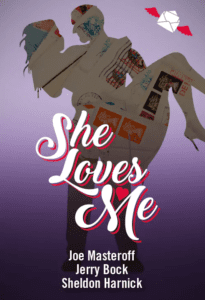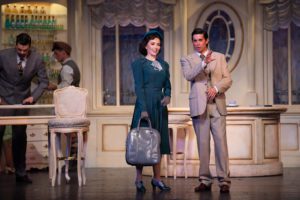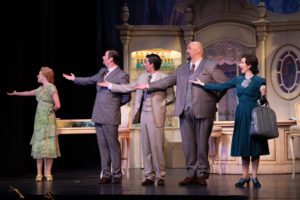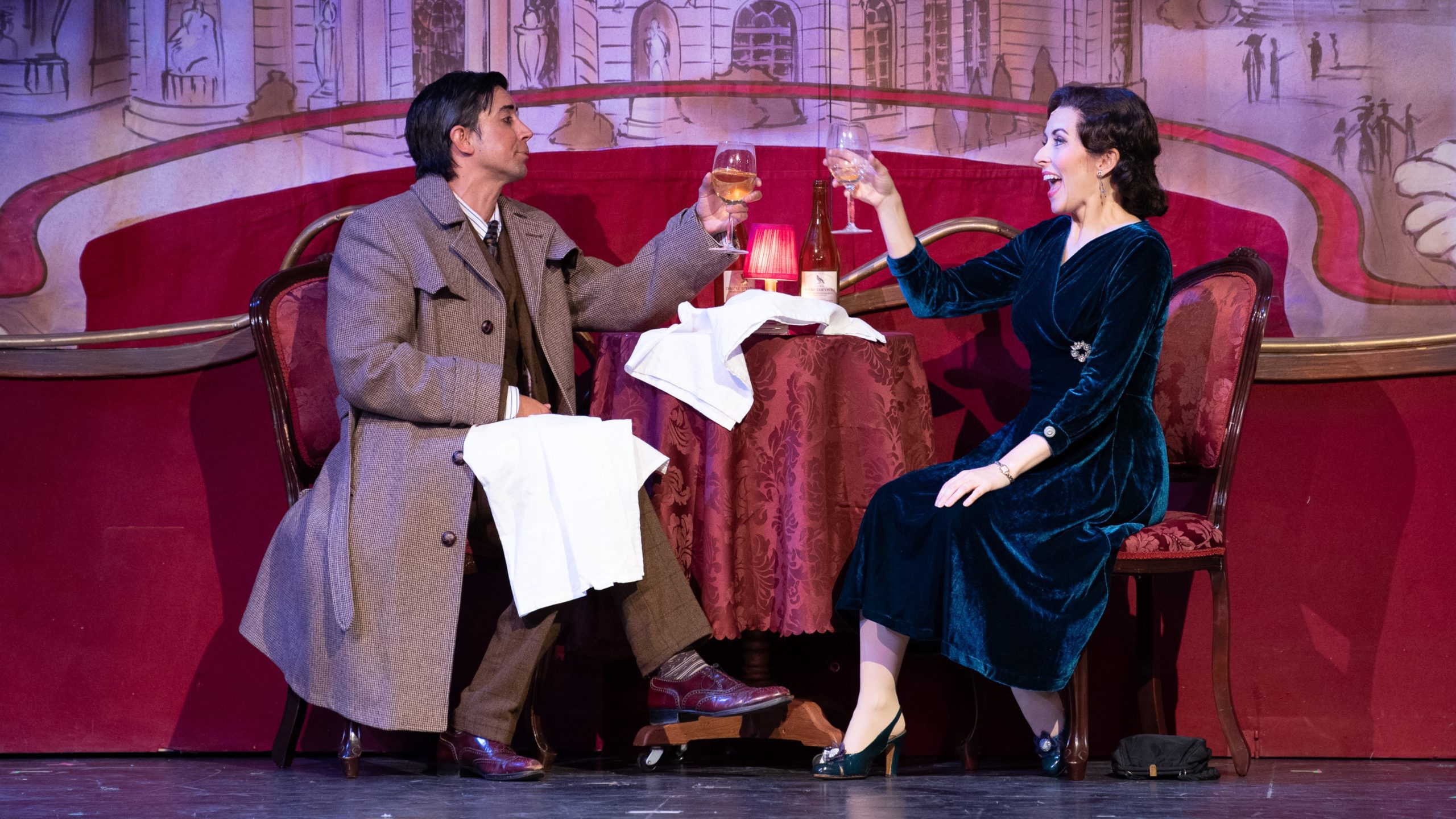LOGAN — She Loves Me is a rare gem in the American musical theatre. It is not as famous as the more popular “go to” musicals audiences see in Utah again and again. She Loves Me, written in 1963, has gained popularity in the last decade or so. Why? The story (book by Joe Masteroff) is sweet and charming, and the score (with music by Jerry Bock and lyrics by Sheldon Harnick) is lovely. But like any gem, the way it sparkles is to put it into a simple setting, light it well and watch it shine. Utah Festival Opera & Musical Theatre tries to do that, but the gem turns out to be rather dull and lackluster.

Though audiences may not recognize the title She Loves Me, many will recognize the story. It has provided Hollywood with a few hits. The story of a warring couple who fall in loathe-at-first-sight despite being each other’s secret penpal sweethearts, first came to the stage in 1937 in Miklós László’s Parfumerie. The plot provided the basis for the 1940 James Stewart/Margaret Sullivan film The Shop Around the Corner, the 1949 Judy Garland/Van Johnson musical In the Good Old Summertime, and the 1998 Tom Hanks and Meg Ryan hit You’ve Got Mail. Recognize it now?
The UFO&MT production of She Loves Me has lovely visual elements: the sets by William Forrester are wonderful, and the costumes by Ashley Bellet are period perfect and flattering. They both give the musical an exquisite style. Unfortunately, most of the cast overacts with gimmicky performances. If the performances are not grounded in human emotion, then it is difficult for the audience to connect with the characters on stage. The result? There is no reason to care about what happens to the characters on stage. But audiences want to care. They want the guy to get the girl and to see unrequited love become requited. When the performances are plastic and unappealing, then it is impossible to feel what the characters onstage are feeling, to laugh or cry or celebrate with them.

That is the main problem with She Loves Me at UFO&MT. It is a beautiful production, inhabited largely by actors with wonderful voices— but whom I could not care about. Occasionally, a performer rises above the mediocrity, or there is a moment that is genuinely touching (partly because the show is so well-written), but these moments are rare.
The standouts in the cast are Fatu Su’esu’e as Ladislav Sipos, Alexander Spence as Arpad Laszlo, and Stefan Espinosa as Georg Nowack. These three gentlemen are, for the most part, genuine and real on stage: Su’esu’e plays the shop’s “yes man,” agreeing to anything his boss wants so as not to lose his job. Su’esu’e is funny and affable, though slightly miscast, and shines on stage. Spence is endearing as the delivery boy for the store who saves his boss after a suicide attempt. Espinosa plays the manager of the shop who instantly dislikes the new shopgirl, even though both are anonymous pen-pals through a lonely-hearts club and falling hopelessly in love through those letters. Espinosa’s rendition of “She Loves Me” (probably the only familiar song in the show) is excellent. Espinosa is captivating and engaging in the song.

Vanessa Ballam plays Amalia Balash, the new shopgirl and object of Georg’s loathing. She is a beautiful woman with an impressive set of pipes, but overplays through most of the show, reacting too much to every line and lyric. She did seem to settle in a little better in Act II, and her performance of the vocally athletic “Ice Cream” (a classic in musical theatre circles) was quite good. Lindsey Kelstrom, who plays sexy shopgirl Illona Ritter, seems uncomfortable in the role, only “playing and posing” at her rabid desire for everything in pants. Illona is an intriguing role, and one that, if played well and slightly understated, is a show stealer. The promiscuous woman with the heart of gold is a staple (some would say cliché) in the theatre world, and I wish that director George Pinney had guided Kelstrom a little more deftly into that role. Kelstom does have a great “patter” song in Act II, “A Trip to the Library,” which she performed very well because she simply sat on a chair and sang to us. It was effortless and lovely.
Pinney staged the show well, and his choreography was facile, inventive, and effective, as were his scene changes. But I do not go to the theater to see the scene changes. I found myself wishing that he would have worked with the actors more effectively to help them create a world that would have drawn me in, not just in random moments, but the entire piece. Still, She Loves Me is so well-crafted and the music so delightful, that at the end, the moment when Amalia finds out that Georg is, in fact, her “Dear Friend” of their letters, I was truly touched.
Because She Loves Me is produced so infrequently, the Utah Festival Opera production is still worth attending. Theatre lovers can enjoy getting acquainted with this show and the moments of delight that appear on stage from time to time.
[box]The Utah Festival Opera and Musical Theatre production of Man of La Mancha plays various dates through August 3 at the Ellen Eccles Theatre (43 South Main Street, Logan). Tickets are $22-82. For more information, visit utahfestival.org.[/box]

